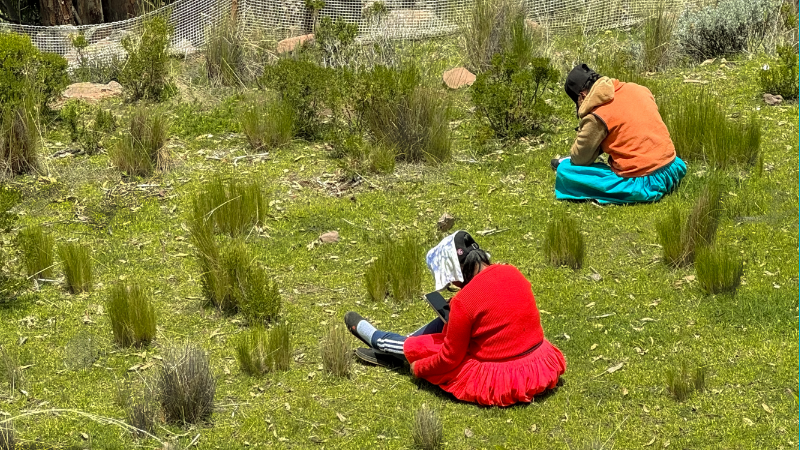Making sense of our connected world

Participating and making decisions online – Participation study 2014 of the HIIG
The rise of the Internet has been accompanied by the promise of an overall democratization like no other medium before (Dorer, 2008). Ever since, the discussion about increasing participation in society is closely linked to the question of the democratic potential of the web. Thus, the issue with online participation is mostly linked to the use of the political Internet. But the academic discourse of online participation reaches far beyond the participation research in political science: the potential of online participation has also been recognized in the economic context. Online-based participation formats are increasingly implemented into practice (Füller et al., 2011). Design platforms and crowdfunding are just a few examples of online participation in the economic context.
The participation study of the Alexander von Humboldt Institute for Internet and Society which was published this week, embraces both perspectives. The representative study, in cooperation with TNS infratest, provides information about the participation behaviour of German Internet users, as well as about the political and economic context. An interdisciplinary team collected data from 13 different participation offerings. The spectrum goes from online petitions to participatory budgets, and from the developments of products to the design of campaigns.
Online participation in political and economic context
Despite comparable concepts and platforms of the participation offerings in the political and economic sector, there are central differences regarding the intention as well as success criteria of online participation projects: in the political field the aim is to legitimate political decision-making processes and to reach and involve broad sections of society. Whereas in the economic sector it is of particular relevance for the company to gain insight into the needs and interests of the participating customers.
Broad participation…
One of the most important findings of the study is the broad use of the participation formats: nearly 50 percent of those questioned, participated in a political platform or in the developments of products. Especially 18- 36 years olds are very active, men more than women. The findings of the study contribute to empirical results within the participation research which state that the probability of online participation increases with formal education. Moreover, empirical findings show that offline and online similar groups of people are participating. Age, level of education and political interest are crucial factors for participation – online as well as offline.
… in average one and a half hours
In regard to time, respondents show remarkable commitment: in average, participants spend one and a half hour participating. The collected data refers to the participation form which each respondent remembered best. The data shows that signing e-petitions has the highest reach among the respondents but the shortest participation duration. In contrast, competitions for developing products online have the lowest number of participants but the longest participation duration. The possibility to win a price might be decisive for this commitment.
Very popular: signing online petitions
Online petitions have turned into a popular form of political participation. Respondents report a big interest in setting up online petitions themselves but due to the required effort, actual participation numbers stay very low.
Taken as a whole, participation offerings in the economic context are less well known than the political ones. However, crowdfunding and online product configuration grasp a high significance reach a high range in the online population.
Motivations and incentives behind participating online
A cluster analysis of responses concerning the motivation for participating online shows different groups of participants with the same incentive structures: one of the groups consists of highly motivated people who report a high enjoyment while participating and have a great interest in the outcome of their task. Another group is especially interested in achieving learning effects and winning prices while the other user group has limited motivation and is mainly participating because of the possibility to win a prize – but not because of the participation task itself.
Increasing competition in the field of online participation
Quantity and quality of online participation offerings are rising – not least because of the increasing expectations of citizens in the transparency of political processes and demands for increased participation in political decision-making processes. The growing number of participation formats is accompanied by an increasing competition, especially in the political field. Active participants will be spread out and the common criterion for success – a broad participation – will be even more difficult to achieve.
This post represents the view of the author and does not necessarily represent the view of the institute itself. For more information about the topics of these articles and associated research projects, please contact info@hiig.de.
Research issues in focus
Sign up for HIIG's Monthly Digest
and receive our latest blog articles.
Exploring digitalisation: Indigenous perspectives from Puno, Peru
What are the indigenous perspectives of digitalisation? Quechuas in Peru show openness, challenges, and requirements to grow their digital economies.
Diamond OA: For a colourful digital publishing landscape
The blog post raises awareness of new financial pitfalls in the Open Access transformation and proposes a collaborative funding structure for Diamond OA in Germany.
Disinformation: Are we really overestimating ourselves?
How aware are we of the effects and the reach of disinformation online and does the public discourse provide a balanced picture?




